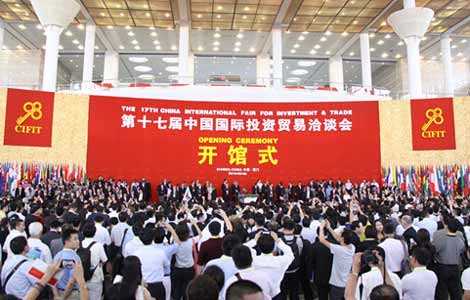Beauty pageant, women's liberation, Islam and democracy
Updated: 2013-09-12 10:09
(asianewsnet.net/The Jakarta Post)
|
||||||||
"It is always a good idea for young people to be on the polite and amiable side. Politeness and amiability breed wealth, as they say," said Chinese writer Lu Xun.
"How about physical beauty, Master?" we might ask him, "as politeness and amiability come second and third and often tend to be complementary in a pageant?"
On September 7, 1968, around 400 activists comprising feminists and civil rights advocates held a demonstration at the Miss America Pageant on the Atlantic City Boardwalk. The protest decried the false and fake ways in which women were expected to look and act.
They threw "the instruments of female torture"such as bras, high heels, girdles, nylons, hair curlers, Playboy and Good Housekeeping magazines into “a freedom trash can". They said enough to all of the uncomfortable dress codes and sexual exploitation, which actually is for the sake of men and economic gain.
They shouted for a "women’s liberation" movement. They called for no more Miss America pageant or alike.
On the other side, beauty pageants, or all the beauty instruments, were said to be the means by which women could express their sexuality, to enable them to be what they were. Or it was said that all of them helped women to have feelings of power or even the power itself.
The problem, as many feminists questioned, was that it would never be a real empowerment. They only seemed to be more powerful despite still being caught in the trappings made for them. They were never superior. This was a false awareness.
Carol Hanisch, an exponent of the 1968 protest, stated that women needed to carefully look at the instruments and agenda and decipher what they actually mean to women.
It was based on the true understanding that they would be able to decide the appropriate things for themselves both individually and collectively.
The 1968 protest was a juncture where a new perspective about how women had been systematically oppressed in either domestic and public lives was widely acknowledged around the world.
In recent weeks, in Indonesia, especially in the cities, we have seen protests and dialogues surrounding the Miss World 2013 pageant. Different from the 1968 protest in America, religious reasons play the most important role in Indonesia.
Apparently bowing to the mounting pressure from Islamic groups, the government decided to hold all the events in Bali despite the previous plan to hold the final in Sentul, near Bogor, West Java.
First, they argue, as the majority Muslim population should be respected, particularly related to how women should be clothed. Tank-tops, swimsuits, tight or transparent gowns are not Islamic. Women should wear proper dress to ensure nobody will be sexually aroused looking at them.
Second, more analytically, as a Friday flyer of Hizbut Tahrir Indonesia (HTI) says, such a pageant actually derogates women and positions them as only for sexual interest. It also barters women’s beauty for economic purposes. It may poison Muslims and make them forget the true teaching of their religion about Muslim private life.
Using a more critical perspective in understanding women in Islam, especially with historical analysis on its formative part, we will eventually come to a notion (or even a fact), which to a certain extent resembles the essence of women’s liberation movement in the above story.
In the first part of a documentary movie made by outsiders called Islam: The Empire of Faith (2000), narrated by Ben Kingsley, we could easily understand the liberation spirit to liberate women from cultural oppression.
Islam emerged to challenge the murder of female newborns, positioned women much more meaningfully in the society and to a great extent forbade any violence against women.
Conceptually, furthermore, the movie told us that Islam gave women a meaningful place in this new faith. Not only that Islam positions women as al-umm or ummahaat, the mother of life that true happiness in both worlds, here and the hereafter, is dependent on their being but also they have more economic role.
In the early phase of his propagation, for example, Prophet Muhammad depended very significantly on Khadija, his first wife, until she passed away. We might suspect that it was more on her wealth as she was rich. Yet, if we read the history more carefully, he was actually more determined by her personal capabilities.
Put shortly, therefore, and historically for sure, we will come to the notion that Islam deals with more than the physical appearance or sexual lust directed toward women. Women are definitely not "something" to sell.
They make human lives possible and meaningful from time to time and we, therefore, must respect them more than just with cosmetics and uncomfortable garments.
However, as democracy has no competitor after all and is the best choice in public life and domain, everybody must keep recognizing and maintaining the availability of freedom.
Because it is democracy that gives us the sphere where we can freely think and learn everything and chance through which our thought can come out in any participatory activities.
Rejections, disagreements or even political and legal actions are hence typical in democracy. It is our maturity to look at them and to respond appropriately that count absolutely. So, if you don’t like something on your TV, just turn it off.

 China's Christian churches reduce leaders' age ceiling
China's Christian churches reduce leaders' age ceiling
 Student's rare blood bonds Kazakhstan and China
Student's rare blood bonds Kazakhstan and China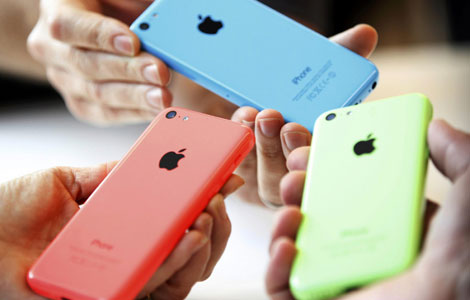
 Apple's low-end phone price disappointing
Apple's low-end phone price disappointing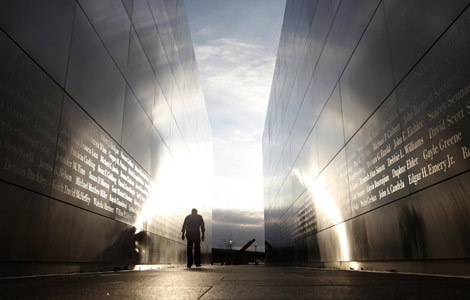
 US marks 9/11 anniversary
US marks 9/11 anniversary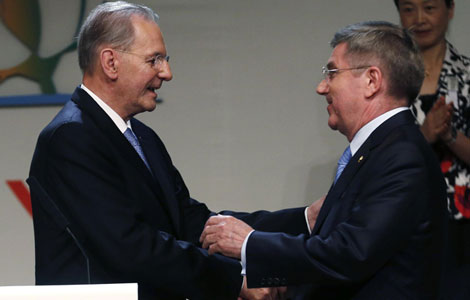
 German Bach elected as IOC president
German Bach elected as IOC president
 Implant surgery for boy's eyes a success
Implant surgery for boy's eyes a success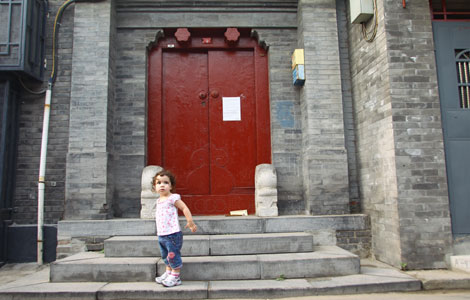
 Hutong life facing change
Hutong life facing change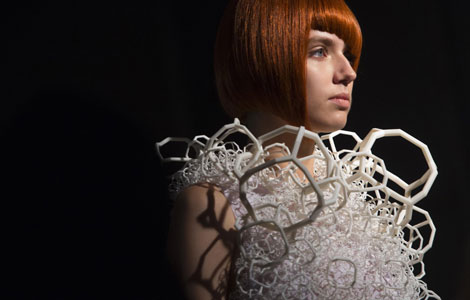
 New York Fashion Week in session
New York Fashion Week in session
Most Viewed
Editor's Picks

|

|

|

|

|

|
Today's Top News
Report questions US firms pursuing cloud computing in China
Reducing poverty gains momentum in Asia
China turns to US sorghum for animal feed
Russia proposal likely to avert US airstrikes
Li stresses transformation of economy
FM dismisses Philippine accusations
China's global firms face 'trust gap'
Shanghai gets tips on innovation
US Weekly

|

|

